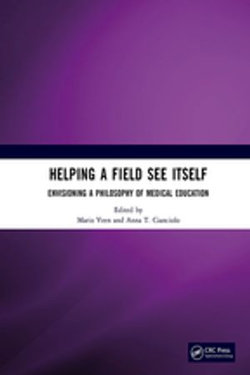The perceived value of philosophy to medical education is increasing. But beyond the occasional application of philosophical concepts, what does it mean to be philosophical about medical education and to do philosophy—to create new concepts and ways of thinking about what medical education is? The complex and dynamic nature of academic medicine requires medical educators to reflect on their practices, to question assumptions, and to embrace the ambiguity of a world that cannot be captured by any one model or theory.
This volume explores philosophy as a practice in medical education. We use persistent problems that vex medical educators as a starting point to do philosophy, asking fundamental questions to probe them: How are teaching and learning related? How do we educate the value of personal experience relative to scientific evidence? We also challenge the assumptions underlying these problems with alternatives: What if teaching does not cause learning? What if we cannot divide our inner and outer world? We then explore ways forward: If we cannot cause learning, how do we reconceptualize the educational process? How do we help physician trainees critically reflect on medical epistemology throughout their professional development?
Each chapter explores one theme in medical education (e.g., education, science, inequality, technology, mortality) from a philosophical perspective, opening it up to fundamental re-examination and inviting readers to continue exploration beyond the printed words. This book is a step towards enabling medical educators to practice philosophy themselves at appropriate moments in their work. In this way, it aims to establish medical education as a mature field with its own philosophy. The chapters in this book were originally published in the journal Teaching and Learning in Medicine.



Share This eBook: